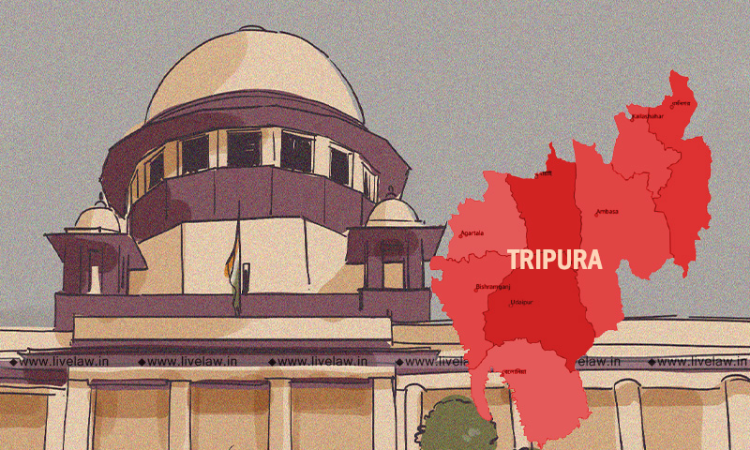Supreme Court Restrains Tripura Police From Acting Against Activist's Tweets On Tripura Violence
Mehal Jain
10 Jan 2022 1:12 PM IST

Supreme Court Restrains Tripura Police From Acting Against Activist's Tweets On Tripura Violence
Next Story
10 Jan 2022 1:12 PM IST
